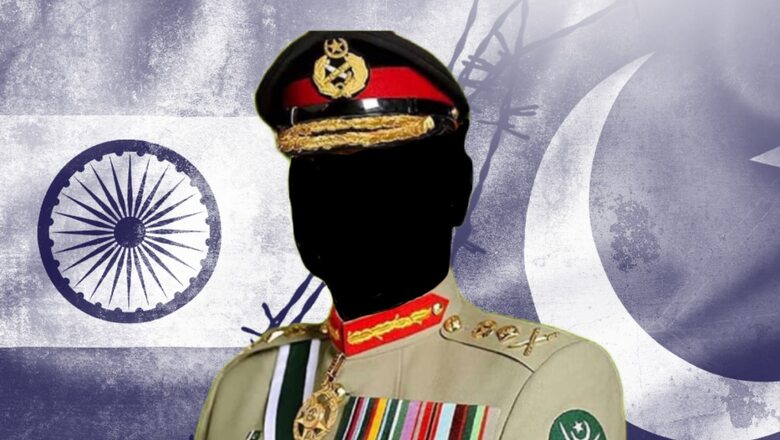
views
A leopard never changes its spots. This holds true for the precariously alive, cash-strapped Pakistan. Even as it reels on the brink of bankruptcy while the world views it as a pariah, Pakistan has the funds to sustain terrorism in Kashmir. Recent attacks on Indian armed forces in Jammu and Kashmir show just how resilient the terror-funding machinery of Pakistan is. So the question that comes to mind is – how does Pakistan still have the money to fund terror in India?
Living on last-minute bailouts from the IMF, with its citizens getting squashed under the burden of record inflation with crippling food and energy costs, Pakistan may not have enough forex reserves to service its import bills or even enough cash to keep the lights on for its people, but it sure has enough in the bank to fund Lashkar-e-Taiba and its aliases to keep the fire of terrorism alive in Kashmir.
Even as the guns at the Line of Control have fallen silent for over two years now, Pakistan has not turned the engines of its terror machine off. Four personnel — three from the Indian Army, including a Colonel and a Major, and a Deputy Superintendent of J&K Police – were killed during a gunfight this week.
While details of the attack are scarce, it has come to light that Pakistani terrorist groups have recalibrated their strategy — orchestrating small-scale attacks in Kashmir, keeping the region on the boil, but without crossing a threshold that would provoke India to go all out.
Reports have also emerged that narcotics trade is further fuelling these terror groups’ capabilities, helping them buy assistance from locals.
India has campaigned relentlessly against terror financing, with the aim to get Pakistan blacklisted by the Financial Action Task Force (FATF). However, Pakistan has crawled out of the grey lists and has even secured a bailout from the IMF for the 23rd time. While the IMF’s intervention may open up the Pakistani government’s books to its scrutiny, it does not secure a view of the Pakistani military’s finances which run unruffled, albeit in the shadows. These off-the-books riches of the Pakistani military power the deep state of Pakistan.
In spite of dwindling foreign reserves, the government has raised defence spending by 15.5%, allocating over Rs 1.8 trillion in a budget of Rs 14.4 trillion for the fiscal year 2023-24.
Additionally, the Pakistan Army (Amendment) Bill 2023 grants complete legal status to the military’s extensive business holdings, criminalises any form of criticism directed at the armed forces, and bestows upon them the authority to engage in endeavours related to national development and the promotion of national or strategic interests.
Any “unauthorised disclosures” even by civilian employees working in entities affiliated with or controlled by the Pakistan Army like the Fauji Foundation, Army Welfare Trust, Fauji Cement, Fauji Urea, and so on, shall be deemed a criminal offence, hence providing further cover to the military-industrial complex and its clandestine empire.
These developments have further empowered the military establishment. The Pakistani army is running the most lucrative and powerful business empire in Pakistan, accounting for nearly 10% of its GDP. The annual revenue of this massive conglomerate is upwards of $26 billion which is more than any Indian conglomerate.
There is no major business in Pakistan which does not entail the involvement of the Pakistani army. The Pakistan Army General Headquarters oversees this empire as military generals dominate almost every major sector of the economy, from real estate, cement and fertiliser manufacturing to food and pharmaceuticals.
This sprawling empire functions under the garb of charitable organisations, evading taxation and enriching army generals right, left and centre. Army generals’ wealth sees an exponential rise post-retirement in Pakistan. This conglomerate is at the heart of Pakistan’s economic woes. The military’s hegemony in business prevents the entry of new players, preventing citizens from reaping the benefits of healthy competition.
During the 1980s, when the US provided funding to the Afghan Mujahideen, some of that money was allocated to various purposes. A portion went to Afghanistan, some to the regions of Punjab and Kashmir, and another part was used to build economic and industrial capabilities in Pakistan, following a model similar to what was done in Egypt. Numerous companies were established, including shell companies, to launder a significant amount of funds. This money could then be used in areas unrelated to Afghanistan without the threat of detection.
Further, the Pakistan Army received direct military aid from the U.S. Since 2002, the US has sent more than $14 billion in military aid to “combat terrorism”. This is part of a total of $33 billion in US aid to Pakistan over the last two decades.
Pakistan is said to have diverted a large chunk of this amount to strengthen the military’s stranglehold on the nation, while also propping up home-grown terror groups as a part of its strategy to defeat India with a thousand cuts and to extend its interests in Afghanistan. This two-front conflict has enriched the Army and kept Pakistan on its toes for decades.
Since its formation, Pakistan has been ruled by its military either directly or indirectly. In its 76 years of existence, never once has a Prime Minister in Islamabad completed a full term. No Pakistani Prime Minister has survived the wrath of the powerful army. Those who fell out of favour were either hanged, assassinated, jailed or banished into exile. The Rawalpindi Generals need the illusion of active military threats to shield their exploits and justify their very existence. An everlasting conflict with India is the oxygen its military lives on.
It is sufficiently clear that the Pakistani military has a corpus of funds dedicated to its terror activities, including those in Kashmir, stashed away from the lens of IMF conditions. The economic situation of Pakistan will not improve as long as this all-powerful conglomerate is not dismantled. The global lending agencies, including the IMF, must acknowledge this and demand access to scrutinise the finances of this mega-rich army of a mega-poor nation. India must also use the recent terror attacks to push the case against Pakistan at FATF plenary to be held in October 2023.
Views expressed in the above piece are personal and solely that of the author. They do not necessarily reflect News18’s views.



















Comments
0 comment